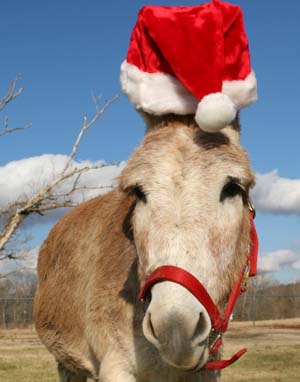By Meghan Vivo Horses are part of Dede Beasley’s DNA. She has been riding since she was a little girl, joining a long line of equestrian experts in her family. Growing up, day-to-day life wasn’t always easy. As a child o f two erratic alcoholics, Dede struggled with eating disorders, alcoholism, abusive relationships and trauma through adolescence and young adulthood. “Animals in childhood and recovery in adulthood are my two saving graces,” Dede says. For the past 30 years, Dede has shared both of these passions with others. She became a licensed professional counselor and began counseling individuals, groups and families in her private practice. When she joined The Ranch rehabilitation center, she couldn’t help but notice some striking similarities between horses and people. The dynamics of horse-human interactions were similar to the human-human interactions of the families and couples she had treated in her private practice. Before equine therapy was on the radar of most therapists, Dede knew the power of people working with animals based on her own childhood and her experience as a therapist. Beyond the certifications and curricula which have since been developed in the field of equine therapy, Dede has decades of firsthand experience. She married her two passions in her work at The Ranch and began to see profound changes in her clients. An Uncommon Approach to an Alternative Therapy Dede’s approach to equine therapy is grounded in a few core principles. First is regard for the horse. Rather than viewing the horse as a “dumb animal” or a tool for human gain, Dede has the utmost respect for the horse as a partner in the therapeutic process. “Horses are really precious to me,” she says. “When I do equine work, I feel like I’m witnessing grace. In the barn with those horses, everything is just as it should be. These special animals allow people to bring all kinds of issues into the horse’s world, and accept them as they are – imperfections and all.” Like human beings, horses have basic comfort needs that must be met before they can function at their best. “A happy horse is a safe horse,” Dede explains. “When you give a horse the highest regard, you become a member of its herd. Then it can help people be happy so they, too, can be safe.” Applying herd dynamics to her own interactions, Dede works in partnership with her clients to make changes in their lives. There are no power struggles and no attempts at one-upping. Clients at The Ranch don’t have to love horses or have experience working with animals in order to benefit from equine therapy. There are no rules about how clients should respond. Some may enjoy it, others may not. Either way, most clients see something in themselves or the horse that resonates, Dede explains. Healing Through a Relationship with the Horse Dede’s approach to equine therapy takes into account mind, body and spirit. Clients develop a living relationship with the horse, learning how to communicate through body language and to connect emotionally and spiritually. “The horse’s body language and innate way of being in the world are as important in the mind-body-spirit model as the person they are working alongside,” says Dede. “Rather than talking about the horse, I encourage clients to engage with the horse. This builds the foundation for a mutual relationship that allows both the person and the horse to learn from one another.” Working with a horse can quickly expose a person’s maladaptive thought and behavior patterns. In an equine therapy session, Dede may draw metaphors between the client’s interaction with the horse and the patterns in their own lives, addressing such issues as boundaries and communication. She may set up lunging or pacing exercises, or practice haltering, leading or grooming. “Sometimes the most amazing discoveries happen with the simplest exercises,” Dede notes. Depending on the needs of the particular client, she also may step aside and just allow the client to be present with the horse. Dede recalls one client who suffered brutal childhood abuse in her family. Rather than designing a directed equine therapy session, she allowed the client to simply sit in the pasture with the horse. After an hour or so, the client, visibly moved, said, “I’ve never had anybody so big be nice to me before.” This experience, Dede says, created an “alternative memory” for the client. Rather than assuming that anyone bigger or more powerful than her would mistreat her, she had a firsthand experience that showed her she could trust again. A Blessed Life in Recovery As she reflects on the past from her farm in Ashland City, Tennessee, Dede is grateful for the blessings in her life that have allowed her to share her passions with others. Every day, she says, she learns something new or finds a new way to put a concept into words. And every day, she’s out riding horses. “I know my mom loved me because she took me to ride ponies as a child,” Dede recalls. “As difficult as times got, that was one thing she never denied me, and I love her dearly for it. So here’s to my mom, who I know would be enchanted with the work we’re doing at The Ranch.”
Call for Immediate Help:1.844.876.7680

